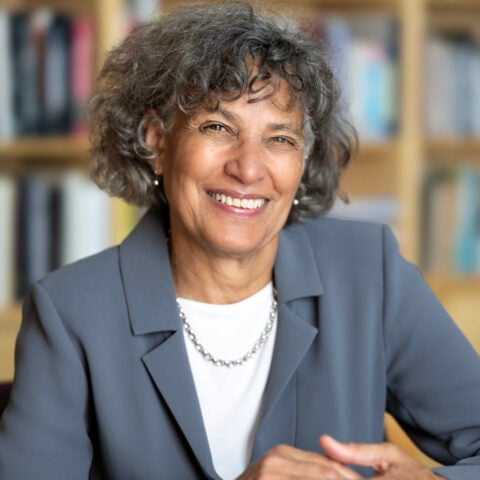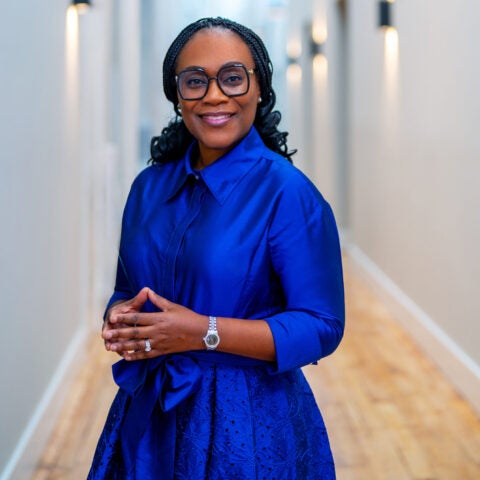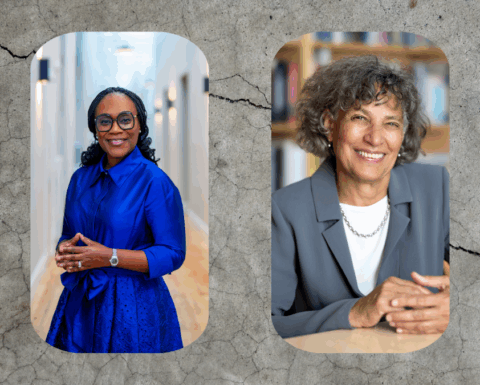Inherited trauma, inherited equity: Reparations as a determinant of health
Date: Wednesday, November 19, 2025
Time: 1:00pm – 2:00pm EST
Location: Zoom – registration required
Join us for a virtual conversation between Dr. L’Bertrice Solomon, LP.D., JD, MPH, MMSc, and FXB Director, Dr. Mary T. Bassett, MD, MPH, to explore the intersection of reparative justice and racial trauma’s legacy. Is there a pathway to healing for the descendants of the enslaved? For instance, reparations can serve as a transformative health intervention for Black men in Jackson, Mississippi, illuminating how structural repair can advance collective well-being across the South.
In conversation:
FXB Center Director
Dr. Mary T. Bassett, MD, MPH
Mary T. Bassett, MD, MPH, is director of the François-Xavier Bagnoud (FXB) Center for Health and Human Rights and FXB Professor of the Practice of Health and Human Rights in the department of Social and Behavioral Sciences at the Harvard T.H. Chan School of Public Health. With more than 30 years of experience devoted to promoting health equity and social justice, both in the United States and abroad, Dr. Bassett’s career has spanned academia, government, and not-for-profit work.

Chief Public Health Officer
Dr. L’Bertrice Solomon, LP.D., JD, MPH, MMSc
Dr. L’Bertrice Solomon, LP.D., JD, MPH, MMSc. is a Chief Public Health Officer. She is a servantleader,
an activist, a humanitarian, a philanthropist, and a licensed minister. She is dedicated to guiding
the next generation of healthcare leaders in serving marginalized communities. She believes that
healthcare is a human right, not a privilege. Dr. Solomon’s position as a Health Equity Leader involves working in social medicine, social epidemiology, and public health law and policy. Improving the health outcomes for populations of African descent is her passion, influenced by the academic research and works of Dr. Paul Farmer. Inspired by pioneering scholars and activists in health equity and Civil Rights like Ida Louise Jackson, Thurgood Marshall, Fannie Lou Hamer, Marian Wright Edelman, Medgar Evers, Dorothy Ferebee, John Hope Franklin, Ida B. Wells, Charles Hamilton Houston, and a host of other Civil Rights and health pioneers, Dr. Solomon is tenacious in transforming social conditions that will improve life expectancy and health outcomes for unserved and underserved
populations.
Dr. L’Bertrice Solomon’s multiple graduate and professional degrees support her commitment to Health Equity. As a licensed minister, liberation theology serves as the framework within which she champions the liberation of the poor from economic oppression and prioritizes providing healthcare delivery to the marginalized and disadvantaged. Her faith anchors her in the intersection of theology, medicine, and culture, enabling her to bring about a holistic approach to healing. She lives by a James Baldwin quote, “Not everything that is faced can be changed, but nothing can be changed until it is faced.”

Speakers’ remarks are based on their own scholarship and experience. As such, they speak for themselves, not for Harvard University.


